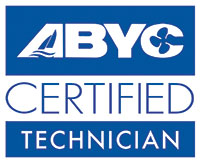Los Angeles Boat Electrical Repair
Found 105 results
Best Electrical Service by Town in Los Angeles
MARINE ELECTRICAL REPAIR IN LOS ANGELES
FIND THE BEST BOAT ELECTRICAL REPAIR IN LOS ANGELES
You might consider consulting the American Boat & Yacht Council (ABYC) when looking for a marine electrician because this organization maintains all of the boat building standards. They have certification programs for various boat repair disciplines, and the largest such program is for electrical systems. Be careful here though and don’t be appeased simply by seeing an ABYC badge flashed at you. Make sure that they actually took the electrical certification program and are not just an ABYC ‘member.’ This organization has a list on their website of all of the technicians that have participated in their program. You can also see the ABYC badges on Mariner Exchange company profiles. Check out the boat electrical repair near you for more. If the electrician will be installing something specific like a navigation system, then you also may want to make sure they are certified by the manufacturer of the system they are installing.
In greater LA, El Segundo and Manhattan Beach will have a good size population of marine electricians. Also, the Long Beach area could be good if you are looking for more commercial electrical services. Often, the larger yachts will go to Long Beach for electrical repair given that the boat repair industry there is geared towards larger commercial vessels. Huntington Beach and Newport Beach are major recreational boating areas as well so there are plenty of marine electricians to meet the demand. The nice thing about boating in LA is that you can go year round, which in turn means that the boat repair shops have steadier business and can maintain higher quality levels of service.
BOAT ELECTRICAL REPAIR FOR DIY
There are some issues that the electrically inclined may be able to remedy themselves. Below you can find tips on how to successfully repair your electrical system yourself. Mainly these are high level tips and general guidelines rather than solutions to specific problems. If you would like to dive deeper, there is an excellent book by Nigel Calder called Boatowner’s Mechanical and Electrical Manual that will help you with any issues. It’s more of a textbook than a thriller novel, so best to not include it in your monthly book club meetings.
-
Get a good multimeter: The best tool for troubleshooting and testing electrical circuits is a multimeter. This will be your best friend whether you are making small repairs or taking on bigger projects.
-
Get a good ratcheting crimper and always use crimp connectors: In order to crimp wire terminals, you will need to buy yourself a good ratcheting crimper. We advise crimping the wire terminals over soldering but both techniques can be used. If you solder the wire terminals, make sure you use a heat sink to stop the solder from wicking up the stranded wire. If you are thinking about using wire nuts, then stop right there. Never ever use wire nuts for marine electrical systems, but rather always use a crimp connector.
-
Remember the coloring for AC wires: AC systems use white for neutral, black for hot and green for ground. Old DC wiring used red for positive and black for ground, so in order to distinguish between DC ground wire and black AC wire, the new ABYC code uses yellow for DC ground.
-
Zincs disappearing is a bad sign: Electrical current in the water will make your zinc anodes degrade faster, so if you notice them disappearing, there is an issue that needs immediate attention. There could be exposed wiring from the dock that is in the water or another boat nearby has exposed wiring in the water.
-
Wire bundle tips: Conduits are perhaps the best way to protect your wiring, but if you don’t have any, then you can use spiral wrap and zip ties. You want to make sure that your wire bundles are out of the way and not rubbing against anything. Constant rubbing caused by the motion of the boat or human interference can cause the wires to chafe. To avoid this, you should run your bundles as high as possible in the boat, not down near the deck. You shouldn’t put AC and DC wires in the same bundle and don’t place an excessive amount of DC wires in the same bundle (due to the heat they emit). A note on bus bars and terminal blocks - don’t put more than 4 wires on them, always cover them, and never place twisted wire under terminal screws.
-
Batteries are the heart of your boat’s electrical system: Flooded cell lead-acid batteries are still the best ones to use for boats. If you notice that any of the cells are getting low, you should top them off with distilled water only. The way you secure the battery is critical to it’s long term viability. You should use a marine grade battery box that is securely fastened in a dry compartment. The bracing mechanism should be strong and should feel like overkill. Another thing that goes without saying, never ever turn the battery switch while the engine is running.


